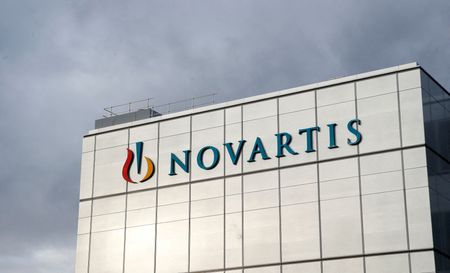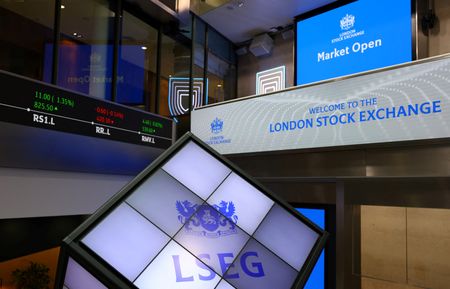By Maggie Fick
(Reuters) -European drugmakers are urging the EU to allow higher medicine prices, warning that without stronger investment incentives, the bloc would fall further behind the U.S., where tariff threats have triggered a wave of pharma investment announcements.
The CEOs of Swiss pharma giant Novartis <NOVN.S> and French drugmaker Sanofi wrote in a letter published on Wednesday in the Financial Times that European price controls on medicines hurt innovation and make the region less attractive, while the U.S. and China are incentivising it.
They proposed a Europe-wide list price for new medicines, pegged “within range of U.S. net prices” and adjusted via rebates, going further than a previous letter they co-signed with over 30 industry CEOs, including those from AstraZeneca , Bayer , Eli Lilly and Novo Nordisk .
That April 11 letter, addressed to EU President Ursula von der Leyen, urged EU support to the pharma industry amid U.S. tariff threats. It said Europe needed to rethink its pricing policies but did not detail proposals.
The letter came days after von der Leyen met with pharma CEOs. In the meeting, Sanofi CEO Paul Hudson criticized European governments for underpaying for innovation, according to an industry source briefed on the session.
That source, who requested anonymity because he was not authorized to speak publicly, said matching U.S. list prices in Europe was unrealistic, but aligning with U.S. net prices might be feasible.
List prices are set by drugmakers before discounts. Net prices reflect what governments, insurers or U.S. pharmacy benefit managers actually pay after those discounts.
The European Commission did not immediately respond to a request for comment on Wednesday
The U.S. pays more for medicines than any other country, often nearly three times that of other developed nations.
European governments negotiate directly with drugmakers for lower net prices, and final prices are often not disclosed.
Reuters reported on Tuesday that the Trump administration was considering tying U.S. drug prices to those paid by other developed nations, though details remained unclear.
On Tuesday, Swiss drugmaker Roche said it would invest $50 billion in the U.S. over five years, the latest major pharma pledge in response to Trump’s tariff threats.
Other companies announcing U.S. investments amid the push for domestic manufacturing include Eli Lilly, Johnson & Johnson, and Novartis.
(Reporting by Maggie Fick; Additional reporting by Ariane Luthi and Benoit Van Overstraeten;Editing by Tomasz Janowski and Bernadette Baum)












